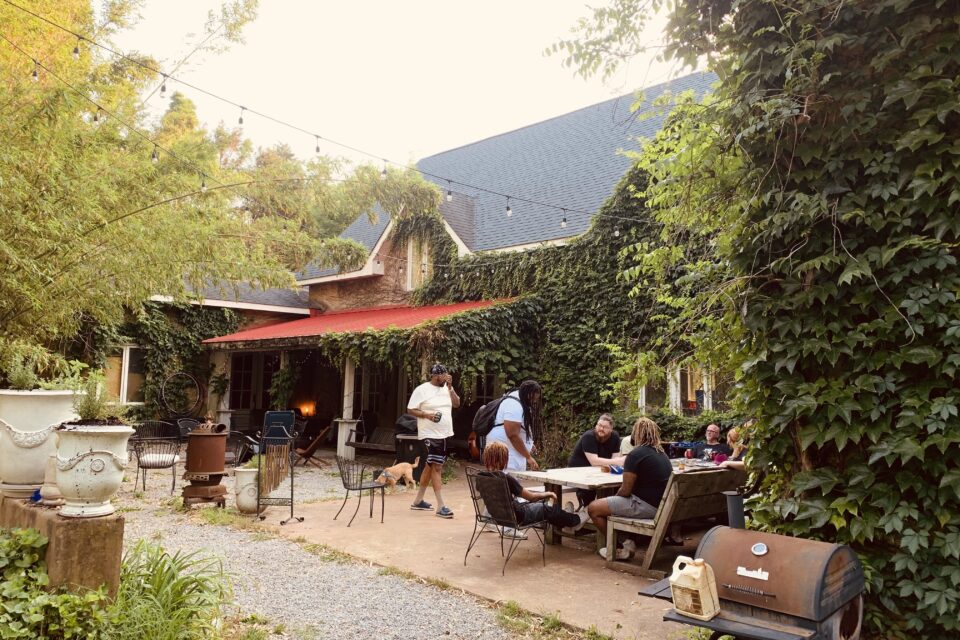“This feels like a castle,” Gee Slab observes, striding up the gravel walkway to Eastside Manor. “You see the big white doors and you see the open balcony, like a maiden’s going to come down, Rapunzel’s going to come down.”
The property he’s describing could easily be a film set, an estate plucked from the English countryside and put right down in an Inglewood neighborhood. Even though Slab, long known as one of Nashville’s most serious-minded emcees, has lived out East for his entire life, he never realized this place was there, concealed behind a fortification of bamboo. “You just feel like you’re not where you’re at,” he marvels, casually gesturing around him. “You don’t think you’re in Middle Tennessee anywhere.”
Technically, Six One Trïbe, the hip-hop collective Slab co-founded with sound engineer Aaron Dethrage, has done some filming here, most of it documentary-style, aside from a few music videos. But day to day, the functioning Eastside Manor studio, which Dethrage manages, serves as Trïbe headquarters, the spot where all 16 members, and a bunch of their peers from the local scene, convene to brainstorm, strategize, make beats, work on songs, rehearse for shows and just generally hang out.
The importance of that space to Trïbe can’t be overstated; it has everything to do with how these creative types who value their individuality have forged such a fervently cohesive unit. It’s also an essential resource for hip-hop music-makers who’ve lived in the shadow of their city’s music industry with little access to its pathways. For some Trïbe members, it’s the first professional studio they’ve had regular access to. Many speak of it as the manifestation of long-held desires, and all are aware of how different it is from any other studio in town.
On a recent visit to the Manor, I asked Slab and Dethrage for a tour, and they decided to start in an unexpected place: the open-plan kitchen, site of many potluck parties. Eventually, we made our way to the stately library that doubles as a studio control room. Lined by dark wood paneling, its bookshelves extend to the vaulted ceiling, stocked, Dethrage notes, “not with A Tale of Two Cities or Shakespeare” but “paperback sci-fi.” A pair of analog recording consoles sit in the middle of the room, and there’s seating for half a dozen. That’s often far too little furniture to accommodate their style of collaboration.
“With these Trïbe sessions,” Dethrage relates, “we’ll have 25 or 30 people out here at a time. So we have our little stack of, you know, church potluck folding chairs. Any day when the whole group is out here, you’ll open up this door and it’ll just be a maze of blue folding chairs and bodies and people all kind of on their phones, writing different lyrics.”

